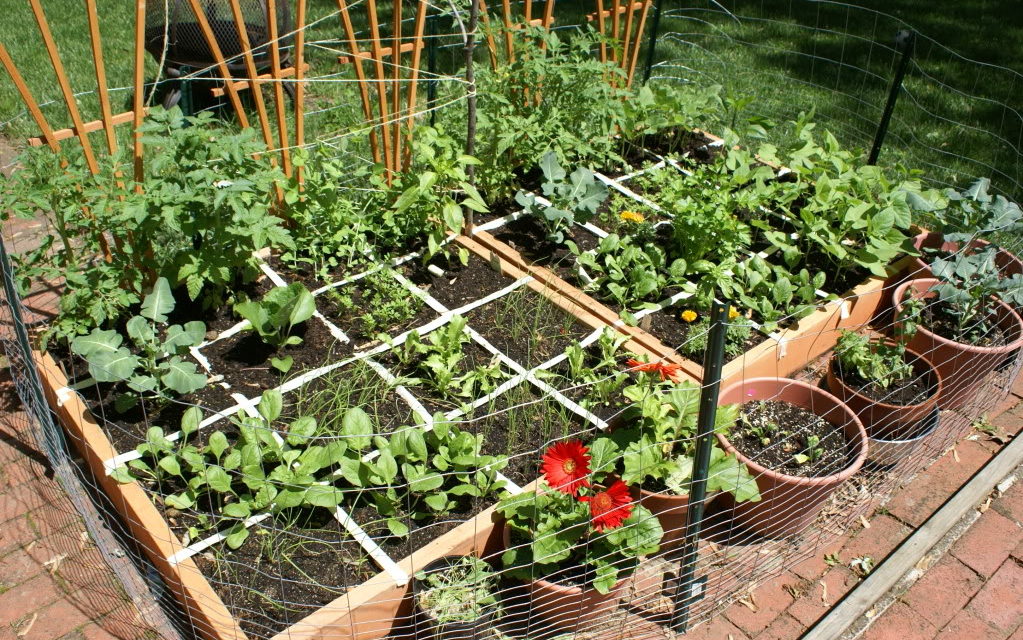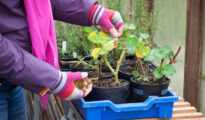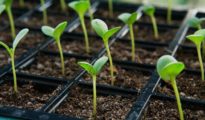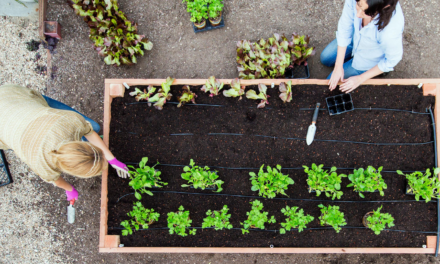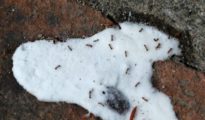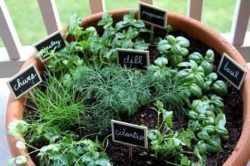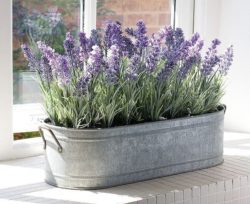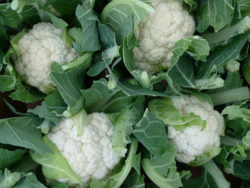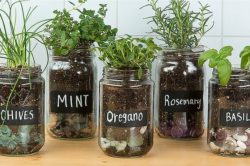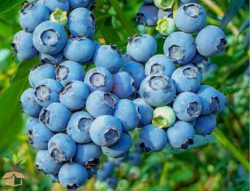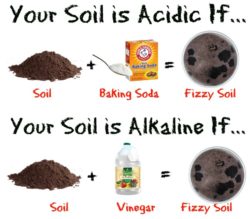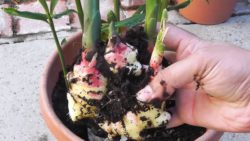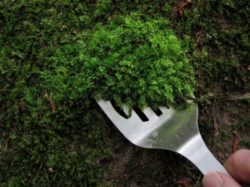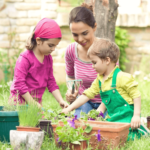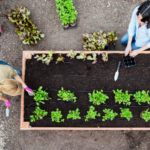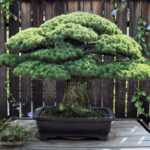Organic gardening is a way of growing plants and crops without the use of chemicals or synthetic fertilizers. It is an environmentally friendly approach that is becoming increasingly popular among gardeners who want to reduce their impact on the environment and promote sustainable agriculture. In this blog post, we will discuss the benefits of organic gardening, how to get started, and some tips for growing a successful organic garden.
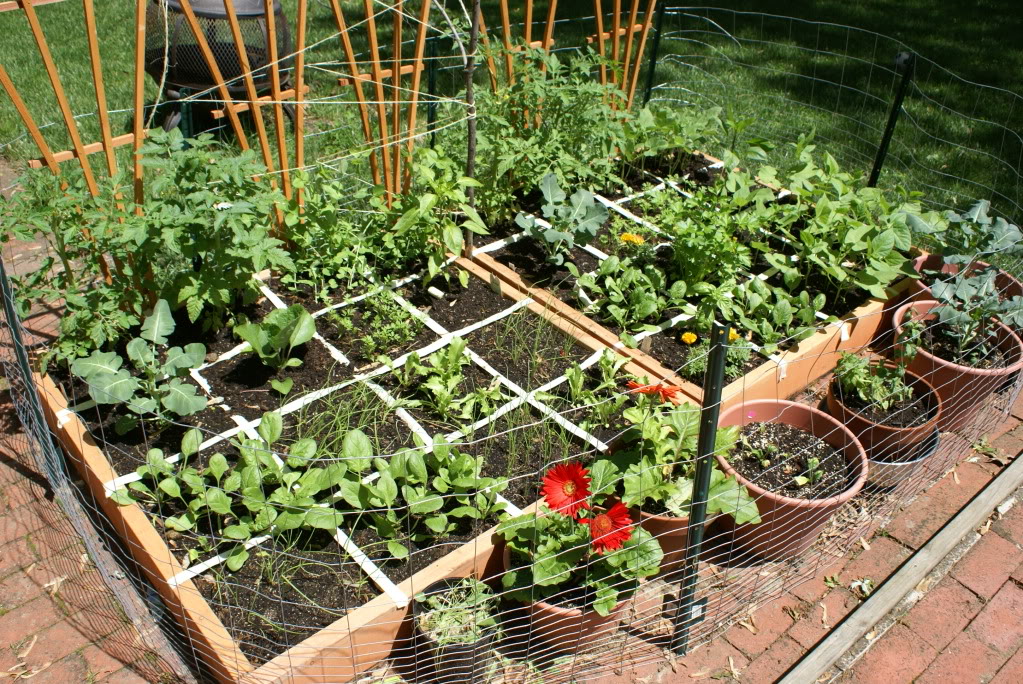
Benefits of organic gardening
Organic gardening has numerous benefits, both for the environment and for your health. Here are just a few of the benefits of organic gardening:
Reduced environmental impact: Chemical fertilizers and pesticides can have a negative impact on the environment, polluting waterways and harming wildlife. Organic gardening helps to reduce this impact by using natural methods to promote plant growth and control pests.
Healthier food: Organic gardening produces healthier food that is free from harmful chemicals and pesticides. Organic fruits and vegetables are often richer in nutrients and have a better flavor than conventionally grown produce.
Cost savings: Organic gardening can be a cost-effective way to grow your own food and reduce your grocery bill. By using natural methods to promote plant growth, you can save money on expensive fertilizers and pesticides.
Improved soil health: Organic gardening promotes soil health by using natural fertilizers and promoting the growth of beneficial microorganisms. This can improve the overall health and fertility of your soil, making it easier to grow healthy, productive plants.
Getting started with organic gardening
Getting started with organic gardening is easier than you might think. Here are some steps to get you started:
- Choose a location: Choose a location for your garden that gets plenty of sunlight and has well-draining soil.
- Prepare the soil: Before you start planting, prepare the soil by removing any weeds or grass and adding compost or other natural fertilizers.
- Choose your plants: Choose plants that are suited to your climate and growing conditions. Look for varieties that are disease-resistant and require minimal inputs.
- Water regularly: Water your plants regularly to keep the soil moist, but not waterlogged.
- Control pests naturally: Use natural pest control methods, such as companion planting, crop rotation, and beneficial insects, to control pests and disease.
Tips for growing a successful organic garden
Here are some tips for growing a successful organic garden:
- Choose the right plants: Choose plants that are suited to your climate and growing conditions. Look for varieties that are disease-resistant and require minimal inputs.
- Use natural fertilizers: Use natural fertilizers, such as compost, manure, and bone meal, to promote plant growth and improve soil health.
- Mulch your garden: Mulching your garden can help to conserve moisture, suppress weeds, and improve soil health.
- Use companion planting: Companion planting is a technique that involves planting different crops together to benefit each other. For example, planting beans with corn can help to fix nitrogen in the soil and improve the growth of both crops.
- Rotate your crops: Crop rotation is a technique that involves planting different crops in different locations each year. This can help to prevent soil-borne diseases and improve soil health.
- Attract beneficial insects: Attracting beneficial insects, such as ladybugs and lacewings, can help to control pests naturally and promote plant growth.
Best organic gardening products
There are many great organic gardening products available on the market, each with its own unique benefits and drawbacks. Here are some of the best organic gardening products:
- Compost: Compost is a natural fertilizer that is made from kitchen and yard waste. It is rich in nutrients and can help to improve soil health.
- Neem oil: Neem oil is a natural insecticide that is derived from the neem tree. It can be used to control a wide range of pests, including aphids, mites, and caterpillars.
- Beneficial insects: Beneficial insects, such as ladybugs, lacewings, and praying mantises, can help to control pests naturally and promote plant growth.
- Organic fertilizers: Organic fertilizers, such as bone meal, blood meal, and fish emulsion, can help to promote plant growth and improve soil health.
- Mulch: Mulch is a material, such as straw or leaves, that is used to cover the soil around plants. It can help to conserve moisture, suppress weeds, and improve soil health.
Organic gardening is a sustainable and environmentally friendly approach to growing plants and crops. It offers numerous benefits, including improved soil health, reduced environmental impact, and healthier food. Getting started with organic gardening is easy, and there are many products and techniques available to help you grow a successful organic garden. By choosing the right plants, using natural fertilizers, and controlling pests naturally, you can enjoy a bountiful harvest of healthy, delicious fruits and vegetables.

